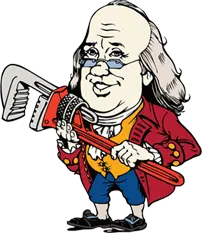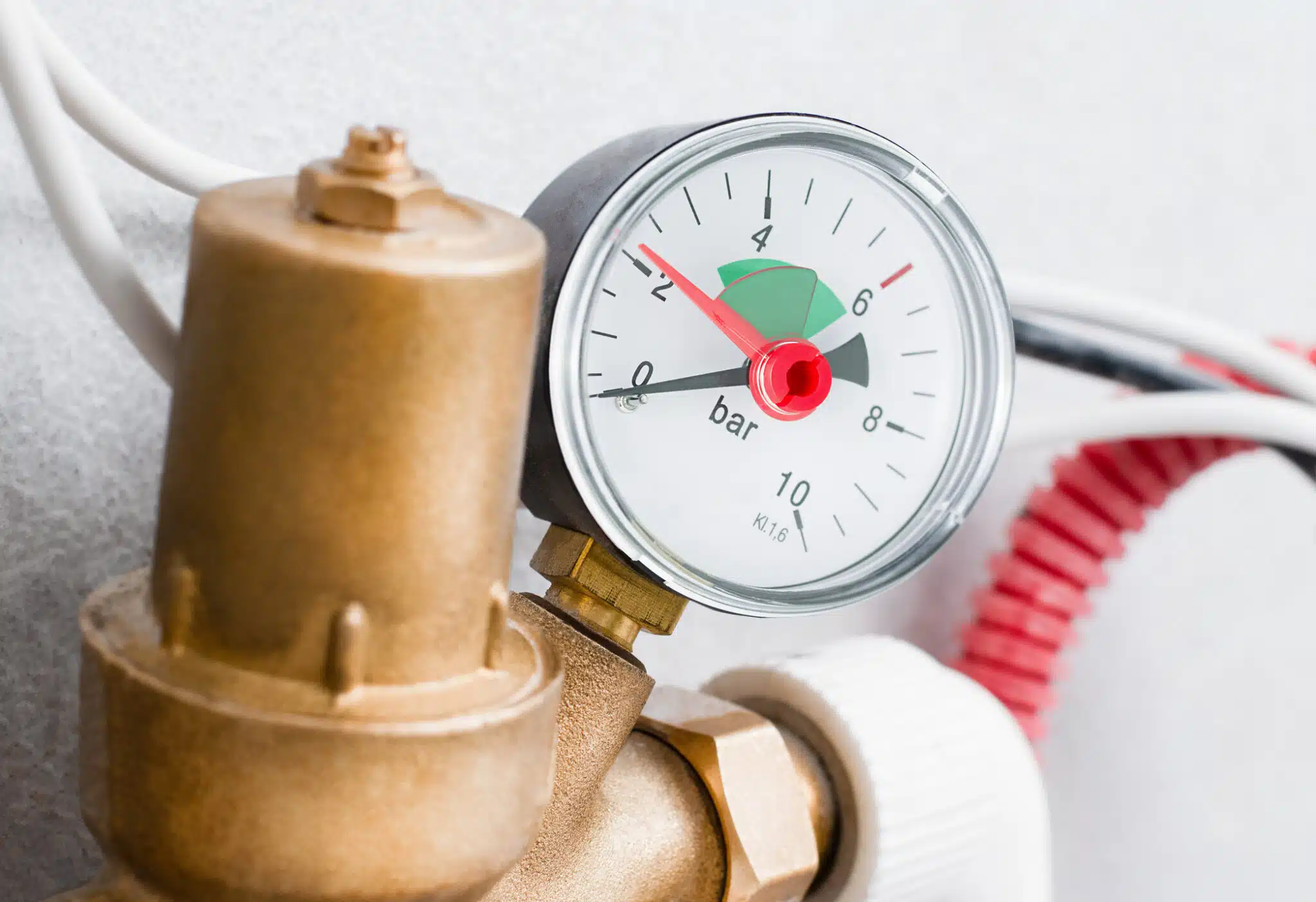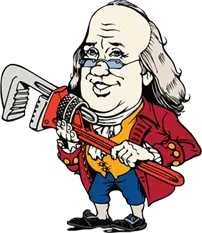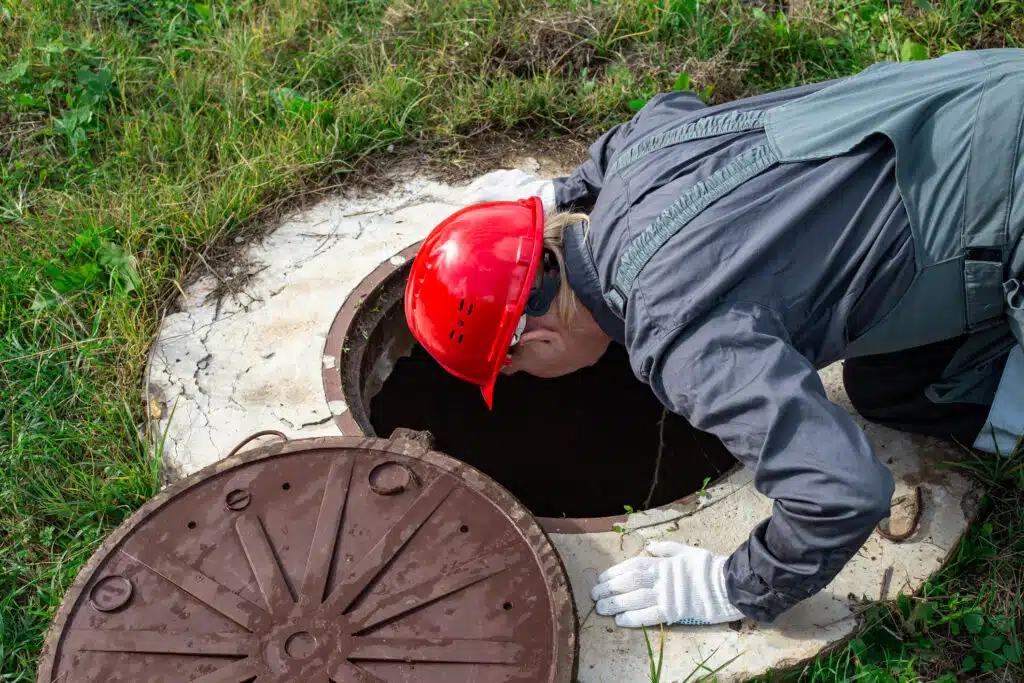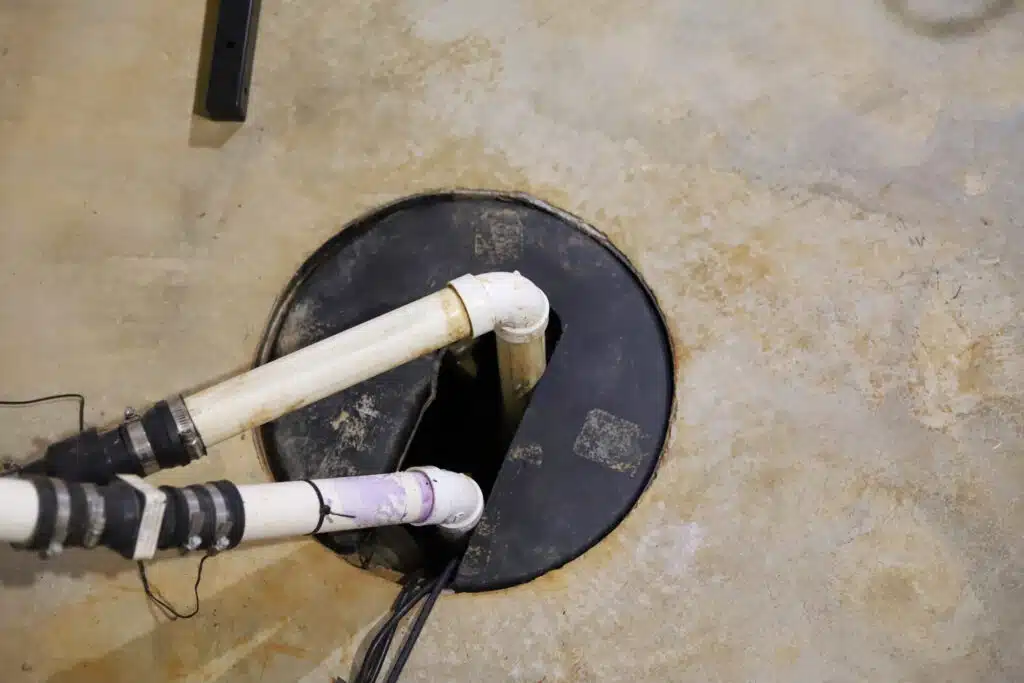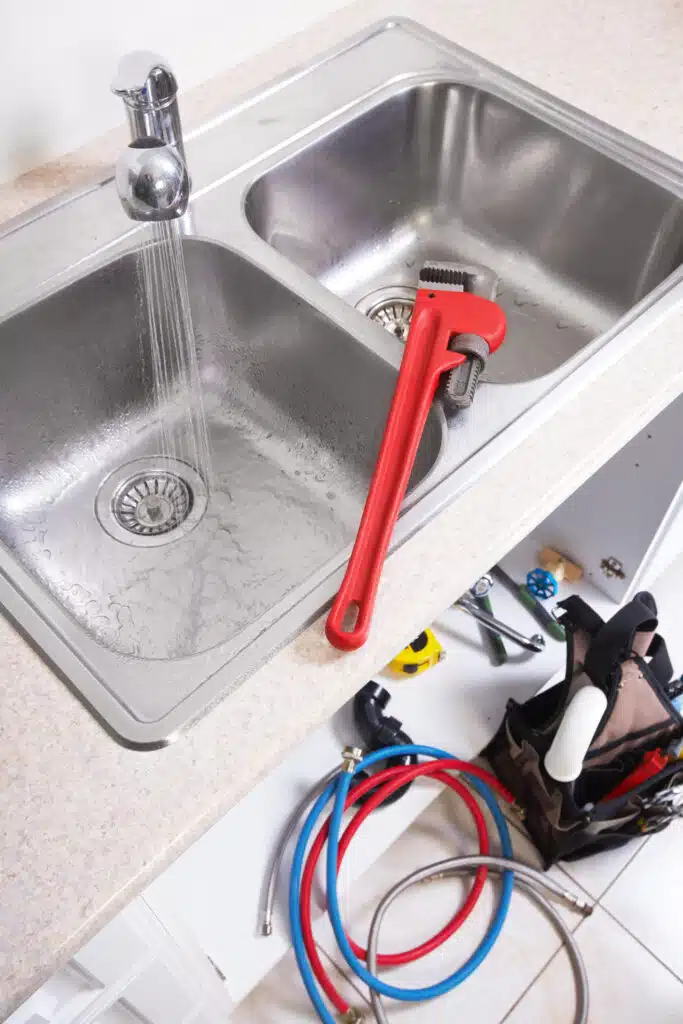A pressure regulator is the key to solving water pressure problems in your home. Ever had your shower feel like it’s blasting firehose-level water one day, and the next day it’s barely a trickle? Inconsistent water pressure can be more than just annoying—it can actually damage your plumbing.
Whether you live in Lancaster, PA, Lebanon, PA, or Reading, PA, managing water pressure is a big deal for homeowners.
This small but powerful device keeps your water flow steady, protects your pipes, and saves you money. Let’s explore why your home might need one and how it can make a big difference.
What is a Pressure Regulator?
A pressure regulator is a plumbing device that connects to the main water line in your home, controlling how much water pressure enters your system. It helps maintain a safe, steady pressure level—usually between 40 to 60 psi—so your plumbing doesn’t experience unnecessary stress.
Without a regulator, high water pressure can cause wear and tear on pipes, leading to leaks, bursts, and expensive repairs.
In homes with older plumbing systems, like those in Lancaster, PA, or Reading, PA, having a pressure regulator can prevent damage caused by sudden surges in water pressure. This device ensures your pipes, faucets, and appliances last longer by keeping the water flow stable and reducing the chances of costly malfunctions.
Why is Water Pressure Important?
Water pressure plays a crucial role in how well your plumbing system functions, affecting everything from how water flows out of faucets to the lifespan of your pipes and appliances.
When the pressure is too high, it can strain joints, fittings, and valves, causing leaks or bursts that require costly repairs. Low water pressure, on the other hand, makes everyday tasks like washing dishes or taking a shower frustrating and inefficient.
In areas like Lebanon, PA, where older homes are common, controlling water pressure ensures that pipes remain in good condition despite their age. Proper water pressure management not only protects your plumbing system but also improves your overall home experience by keeping everything running smoothly.

Benefits of Having a Pressure Regulator
Protects Your Plumbing System
A pressure regulator acts as a safeguard, preventing high water pressure from damaging pipes, joints, and valves throughout your plumbing network. Without it, the constant force from high-pressure water can weaken pipe connections, leading to leaks, bursts, and costly repairs.
In older homes, like many found in Reading, PA, plumbing systems are more vulnerable, making pressure regulation even more crucial. Keeping water flow steady reduces the stress placed on fittings, pipes, and joints, minimizing the chances of unexpected failures.
By installing a pressure regulator, homeowners can proactively avoid plumbing emergencies that often come with hefty repair bills. A well-regulated plumbing system not only reduces the risk of damage but also keeps your home running smoothly for years to come.
Saves Money
High water pressure can drive up water consumption, leading to higher utility bills—even when your usage habits stay the same. By controlling water flow, a pressure regulator helps prevent unnecessary water waste, which translates into immediate savings on your monthly bill.
Preventing leaks and pipe bursts also spares you from expensive repairs, keeping more money in your pocket over time. Additionally, when appliances like dishwashers and water heaters aren’t strained by excess pressure, they use energy more efficiently, resulting in lower energy bills.
With both water and energy savings combined, pressure regulation becomes a smart investment for long-term household budgeting. Managing your home’s water pressure isn’t just about avoiding emergencies—it’s a practical way to reduce waste, lower expenses, and improve your plumbing’s efficiency.
Enhances Appliance Lifespan
Many household appliances, including dishwashers, washing machines, and water heaters, are designed to operate within a specific pressure range. Too much water pressure can wear down internal components like seals and valves, resulting in breakdowns and the need for replacements sooner than expected.
A pressure regulator ensures these appliances receive the right amount of water flow, preventing unnecessary strain that could shorten their lifespan. When appliances operate within safe limits, they not only last longer but also run more efficiently, helping you avoid inconvenient breakdowns.
In places like Lancaster, PA, where appliance repairs can be costly, investing in pressure regulation is a smart way to cut down on future expenses. By maintaining consistent pressure, you can get the most out of your appliances while saving money on repairs and replacements.
Improves Water Quality
High water pressure can stir up sediment, minerals, and other deposits inside pipes, causing cloudy or discolored water to flow from your faucets. Over time, this sediment buildup can restrict water flow, reduce pipe efficiency, and even affect the taste and quality of the water you drink and use.
A pressure regulator keeps water flowing at a steady, controlled pace, reducing the likelihood of disturbing these particles inside the pipes. With proper regulation, you’ll enjoy clearer, cleaner water, making it safer for cooking, drinking, and everyday use.
In addition to preventing sediment buildup, maintaining optimal water pressure protects your plumbing system from clogging over time. Controlling pressure isn’t just about preventing damage—it also enhances your family’s daily experience with healthier, better-quality water.
Signs You Need a Pressure Regulator
Fluctuating Water Pressure
Inconsistent water flow is often a sign that your plumbing system needs attention. One moment, water might rush out forcefully, and the next, it slows to a weak trickle, making everyday tasks frustrating.
These shifts aren’t just annoying—they can indicate underlying issues that place strain on your pipes, fittings, and appliances. Prolonged exposure to varying pressures can lead to leaks or reduce the lifespan of your plumbing.
In areas with older water infrastructure, like Lebanon, PA, such fluctuations are more common, making it essential to stabilize water flow. Ensuring steady pressure helps protect your system and prevents long-term damage.
Water Hammer Sounds
Loud banging or knocking noises in your pipes, known as water hammer, occur when high-speed water suddenly stops or changes direction, sending shockwaves through your plumbing.
Over time, these repeated jolts can loosen connections, damage valves, and weaken pipe joints, leading to costly repairs. Older homes, like many in Reading, PA, are particularly prone to these disturbances, making it crucial to manage water flow carefully.
By slowing down the water entering your system, you can reduce these shockwaves and eliminate those disruptive sounds, ensuring your pipes stay secure and functional.
Frequent Leaks or Bursts
Leaks that seem to return even after being repaired could signal that water is flowing through your system at a force higher than it can handle. Over time, excessive pressure puts stress on joints and fittings, causing them to wear out faster than they should.
Seasonal changes in regions like Lancaster, PA can cause shifts in water flow, making it harder for older plumbing systems to keep up.
Stabilizing the flow reduces the stress on your pipes, preventing leaks and bursts from becoming a recurring problem. Consistent water management extends the life of your plumbing, saving you from expensive repairs down the road.
High Water Bills
A sudden increase in your water bill without any noticeable change in your usage can point to a hidden issue with your plumbing. When water flows too forcefully through pipes, it often leads to waste—whether from small, unnoticed leaks or appliances using more water than necessary.
Toilets, dishwashers, and other household appliances may run inefficiently, consuming more water and increasing your bills. Even if you try to conserve water, unmanaged flow can undo those efforts. By bringing water usage under control, you can prevent waste, keep your plumbing system efficient, and enjoy lower monthly utility costs.
How to Get a Pressure Regulator Installed
Consult a Professional
Installing a pressure regulator isn’t something you want to tackle on your own. It’s a job best left to a licensed plumber who knows how to assess your home’s plumbing system and install the right type of regulator.
Professionals ensure the installation is done correctly, preventing future issues like leaks or improper water flow. They’ll also check for any existing plumbing problems, making sure your pipes are ready to handle a regulated water flow. Hiring an expert saves you time, money, and stress, guaranteeing that your plumbing stays in top shape.
What to Expect During Professional Installation
When you hire a professional, the installation process is smooth and straightforward. The plumber first inspects the main water line to find the best spot for the regulator.
Once located, they shut off the water supply, install the regulator, and adjust it to the ideal pressure setting for your home.
After installation, they’ll test the system to ensure the pressure is balanced and your plumbing is functioning properly. While the job doesn’t take long, having it done right makes a world of difference to your plumbing’s performance and longevity.
Maintenance of Your Pressure Regulator
Regular Inspections
Like any part of your plumbing system, a pressure regulator needs occasional attention to keep it working efficiently. Scheduling regular inspections with a licensed plumber ensures the device is operating correctly and maintaining the proper water pressure for your home.
These check-ups also help identify any small issues before they turn into bigger problems, such as leaks or pressure imbalances.
A professional inspection every couple of years keeps your plumbing in good shape and prevents unexpected breakdowns. Routine maintenance is a smart way to extend the lifespan of both your regulator and your entire plumbing system.
Common Maintenance Tasks
Most of the maintenance for a pressure regulator is simple but essential for keeping your plumbing system in top condition. A licensed plumber will usually perform several routine tasks to ensure the regulator is functioning properly.
- Cleaning out debris: Over time, tiny particles of dirt or sediment can clog the pressure regulator, affecting water flow and performance. Plumbers remove any debris to ensure the regulator stays clear, maintaining steady pressure throughout your home. Blockages are especially common in areas with older pipes or hard water.
- Checking pressure settings: Plumbers use specialized tools to measure the pressure level and make sure it’s within the recommended range, typically between 40 to 60 psi. If the regulator’s settings are off, they can recalibrate it to prevent issues like water hammer sounds or unnecessary stress on your plumbing system.
- Tightening loose connections: Over time, the fittings and connections on the regulator can loosen due to normal water flow vibrations. If left unchecked, these loose connections can result in leaks or reduced efficiency.
- Clearing out mineral buildup: In areas with hard water, mineral deposits like calcium or lime can accumulate inside the regulator, blocking water flow and decreasing efficiency.
- Replacing worn components: Regulators have moving parts that wear out over time, such as seals, springs, and valves. If the plumber notices any parts showing signs of wear, they’ll replace them on the spot to avoid future breakdowns.
These simple upkeep tasks ensure your regulator remains reliable, preventing sudden problems like leaks, bursts, or poor appliance performance. With regular maintenance, your regulator will help maintain a stable water flow and protect your plumbing system for years to come.
Signs That Maintenance is Needed
Keeping your pressure regulator in good condition is essential to avoid sudden plumbing problems and ensure consistent water pressure throughout your home.
When a regulator starts to malfunction, it can lead to a range of issues that, if ignored, could turn into expensive repairs. Below are some key signs that it might be time to have your pressure regulator inspected and serviced by a professional:
- Sudden changes in water pressure: If your water flow becomes inconsistent—strong one moment and weak the next—it’s a sign your regulator might not be functioning properly.
- Unusual noises from pipes: Banging or knocking sounds (known as water hammer) occur when high-pressure water slams against valves or pipe walls, often indicating the regulator isn’t controlling flow as it should.
- Reduced water flow or leaks: If you’re dealing with frequent leaks, drips, or a noticeable drop in water flow, the regulator might need adjustment or replacement. Persistent leaks can also indicate excess pressure straining your pipes.
- Poor appliance performance: If your dishwasher, washing machine, or water heater isn’t working efficiently or takes longer to run cycles, fluctuating water pressure could be wearing down these appliances.
- Call a plumber when signs appear: If you notice any of these signs, it’s important to act quickly. Regular maintenance and timely repairs will keep your plumbing system working efficiently, extending the life of both your pipes and appliances.
Addressing these problems early ensures your home avoids costly emergencies and helps keep your water flow steady year-round. A well-maintained pressure regulator is the key to smooth plumbing, saving you time, money, and stress in the long run.
Take Control of Your Water Pressure Today!
Don’t let fluctuating water pressure disrupt your home and damage your plumbing. At Benjamin Franklin Plumbing of Lancaster, we specialize in installing and maintaining pressure regulators for homes across Lancaster, PA, Lebanon, PA, and Reading, PA.
Our team of expert plumbers ensures your water flow stays steady, keeping your plumbing system and appliances in top shape. Schedule an appointment today and protect your home from unnecessary repairs and rising water bills!

FAQs
What is the ideal water pressure for my home?
The ideal water pressure for most homes ranges between 40 and 60 psi (pounds per square inch). Anything below 40 psi might feel weak, making it hard to do things like shower or wash dishes efficiently. Pressure above 60 psi, however, can put stress on pipes and appliances, leading to leaks, bursts, or damage over time.
How can I tell if my pressure regulator is working?
If your water pressure feels steady and consistent without any sudden drops or surges, your pressure regulator is likely doing its job. However, if you notice fluctuations, loud noises from pipes, or water that comes out too forcefully, it’s a sign that the regulator might need inspection or adjustment.
How often should I have my plumbing checked for pressure issues?
It’s a good idea to schedule a plumbing inspection every 2 to 3 years to ensure your pressure regulator and other plumbing components are in good shape. Regular inspections can catch small problems before they become expensive repairs, especially in homes with older plumbing systems.
What happens if I don’t have a pressure regulator installed?
Without a pressure regulator, high water pressure can cause serious damage to your pipes, appliances, and fixtures over time. You may experience frequent leaks, bursts, water hammer sounds, and higher utility bills due to excessive water use.
Can a pressure regulator save me money on my water bill?
Yes, a properly functioning pressure regulator helps reduce water waste, which can lead to noticeable savings on your water bill. By keeping water pressure steady, it also reduces strain on appliances, saving you money on repairs and replacements in the long run.




